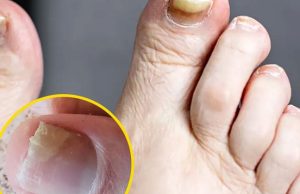If your body has suffered from these things for a long time, don’t hesitate, get your kidneys checked immediately!

1. You’re having trouble sleeping.
When the kidneys aren’t filtering properly, toxins stay in the blood rather than leaving the body through the urine. This can make it difficult to sleep. There is also a link between obesity and chronic kidney disease, and sleep apnea is more common in those with chronic kidney disease, compared with the general population.
2. You’re more tired, have less energy or are having trouble concentrating.
A severe decrease in kidney function can lead to a buildup of toxins and impurities in the blood. This can cause people to feel tired, weak and can make it hard to concentrate. Another complication of kidney disease is anemia, which can cause weakness and fatigue.
3. You feel the need to urinate more often.
If you feel the need to urinate more often, especially at night, this can be a sign of kidney disease. When the kidneys filters are damaged, it can cause an increase in the urge to urinate. Sometimes this can also be a sign of a urinary infection or enlarged prostate in men.
4. You have dry and itchy skin.
Healthy kidneys do many important jobs. They remove wastes and extra fluid from your body, help make red blood cells, help keep bones strong and work to maintain the right amount of minerals in your blood. Dry and itchy skin can be a sign of the mineral and bone disease that often accompanies advanced kidney disease, when the kidneys are no longer able to keep the right balance of minerals and nutrients in your blood.
5. You see blood in your urine.
Healthy kidneys typically keep the blood cells in the body when filtering wastes from the blood to create urine, but when the kidney’s filters have been damaged, these blood cells can start to “leak” out into the urine. In addition to signaling kidney disease, blood in the urine can be indicative of tumors, kidney stones or an infection.
6. Your urine is foamy.
Excessive bubbles in the urine – especially those that require you to flush several times before they go away—indicate protein in the urine. This foam may look like the foam you see when scrambling eggs, as the common protein found in urine, albumin, is the same protein that is found in eggs.
7. You’re experiencing persistent puffiness around your eyes.
Protein in the urine is an early sign that the kidneys’ filters have been damaged, allowing protein to leak into the urine. This puffiness around your eyes can be due to the fact that your kidneys are leaking a large amount of protein in the urine, rather than keeping it in the body.
8. Your ankles and feet are swollen.
Decreased kidney function can lead to sodium retention, causing swelling in your feet and ankles. Swelling in the lower extremities can also be a sign of heart disease, liver disease and chronic leg vein problems.
9. You have a poor appetite.
This is a very general symptom, but a buildup of toxins resulting from reduced kidney function can be one of the causes.
10. Your muscles are cramping.
Electrolyte imbalances can result from impaired kidney function. For example, low calcium levels and poorly controlled phosphorus may contribute to muscle cramping.




















